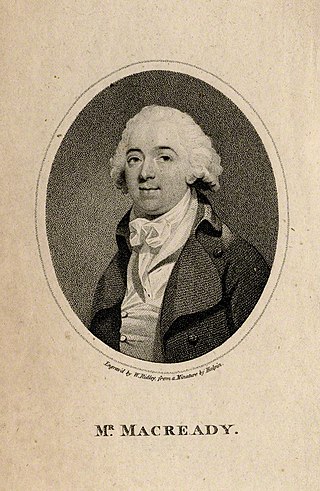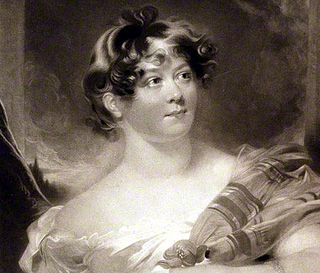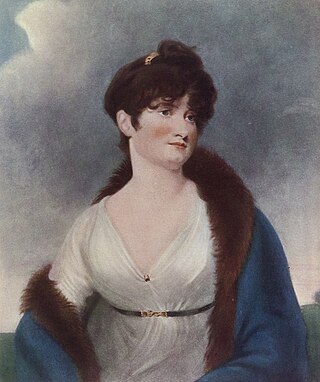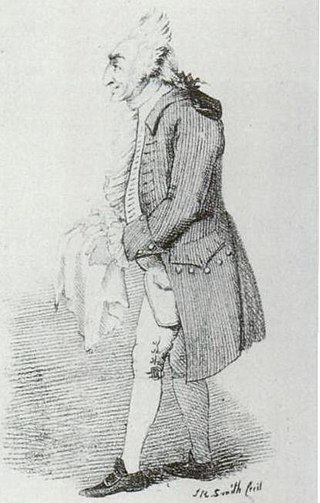Related Research Articles

Spranger Barry was an Irish actor.

David Garrick was an English actor, playwright, theatre manager and producer who influenced nearly all aspects of European theatrical practice throughout the 18th century, and was a pupil and friend of Samuel Johnson. He appeared in a number of amateur theatricals, and with his appearance in the title role of Shakespeare's Richard III, audiences and managers began to take notice.

Margaret Woffington, known professionally as Peg Woffington, was an Irish actress and socialite of the Georgian era. Peg and Peggy were a common pet name for those called Margaret until the late 20th century.

Robert William Elliston was an English actor and theatre manager.
Hugh Kelly was an Irish dramatist and poet. From the 1760s he was employed as a propagandist for the British government, attacking members of the Opposition. After arriving in London in 1760 to work as a staymaker, he soon turned to become a writer and made a living as a journalist. In 1766 he published Thespis, a long poem about the acting profession, which gained him wide attention. He followed up this success with the novel Memoirs of a Magdalen in 1767. He ultimately became known for his stage plays such as False Delicacy and A Word to the Wise.

Mary Ann Davenport [née Harvey] was a British Shakespearean actress.

Elizabeth Younge was an English actress who specialized in Shakespearean roles.

Thomas Wignell was an English-born actor and theatre manager in the colonial United States.

Richard Yates was an English comic actor, who worked at the Haymarket Theatre and Drury Lane among others, appearing in David Garrick's King Lear. He also worked in theatre management, and set up the New Theatre in Birmingham in 1773. Both his first wife, Elizabeth Mary and Mary Anne Graham were actresses.

Mary Ann Wrighten Pownall, née Mary Matthews, was an English singer, actress and composer.
The Warwickshire Company of Comedians, also known as Mr Ward's Company of Comedians and after 1767 as Mr Kemble's Company of Comedians, was a theatre company established by John Ward in Birmingham, England in the 1740s, touring throughout the West Midlands region and surrounding counties over subsequent decades. Unusual in the 18th century as a provincial company producing performances to London tastes and standards, it is particularly notable as the origin of the Kemble family theatrical dynasty, which was to dominate the English stage in the late-18th and early 19th centuries. Sarah Siddons and John Philip Kemble in particular, who were Ward's grandchildren and whose careers began in the company, were the leading actress and actor of their time, and are still considered among the greatest performers in English theatrical history.
The King Street Theatre was the first purpose-built theatre to open in Birmingham, England. The town had had earlier theatres, but the Theatre in Smallbrook Street, whose origins dated back to 1715, and Theatre in New Street, which was in an existence a few years later, were both makeshift structures; and the more substantial Moor Street Theatre, which opened in 1740, was a conversion of an existing building. King Street was a much more ambitious undertaking, being based on the examples of the established London patent theatres.

Louisa, Countess of Craven, originally Louisa Brunton (1782–1860) was an English actress.

William Macready the Elder (1755–1829) was an Irish actor-manager.

Harriett Litchfield or Miss Sylvester Hay was a British actress.

Rosemond Mountain or Rosemond Wilkinson was a British actress and soprano. She was said to be the "best female singer on the English stage" from 1800.
Harriet Pitt was a British actress and dancer.

William Twaits was a British singer, dancer and actor-manager whose career was mostly in the United States in the early 19th-century.
Henry Giffard (1694–1772) was a British stage actor and theatre manager.
Thomas Griffith (1680-1744) was an Irish stage actor and theatre manager.
References
- ↑ Garrick, David (1980), The Plays of David Garrick: Garrick's own plays, 1767-1775, Southern Illinois University, p. 378
- ↑ Highfill, Philip H.; Burnim, Kalman A.; Langhans, Edward A. (1993), A Biographical Dictionary of Actors, Actresses, Musicians, Dancers, Managers, Southern Illinois University, p. 288